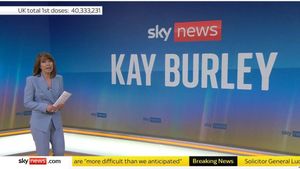Italian tax policies are undergoing significant reform as the government seeks to address the challenges faced by the middle class and combat tax evasion. At Telefisco 2025, Deputy Minister of Economy Maurizio Leo outlined the steps being taken to modify the personal income tax (Irpef) framework, indicating progressive adjustments aimed at benefiting individuals earning between €28,000 and €60,000 annually.
Leo stated, "We have intervened gradually and switched to three tax rates. We made structural changes for 2025 also aimed at the tax wedge, extending the coverage to €40,000." The Deputy Minister emphasized the importance of securing the necessary resources to implement such reforms, asserting, "The problem, as always, is the resources; we are working with the Revenue Agency to find solutions." Notably, his department is banking on increased employment figures, which are expected to lead to higher tax revenues.
Against this backdrop, it was revealed at the event by Vincenzo Carbone, the new Director of the Revenue Agency, of their intensified effort against fraudulent VAT identities, announcing, "We've shut down almost 6,000 companies operating under the 'open and close' VAT scheme, compared to 2,400 last year." This initiative is part of comprehensive actions to curb tax evasion which significantly affects the state budget.
Carbone also highlighted the effectiveness of automated procedures to identify risky tax filings, blocking fraudulent VAT credits worth over €3 billion. He pointed out the shift toward reducing the contentious nature surrounding tax debts, with only 0.5% of overall acts from the Revenue Agency facing legal challenges, down from considerably higher rates two years prior. With over €24 billion refunded to taxpayers last year, these measures aim to boost economic activity across Italy.
One common theme among speakers was the need for simplification within the tax calendar. Elbano de Nuccio, President of the National Council of Accountants, remarked, "We need to rationalize and cut back on obligations. The current deadline for the acceptance of pre-emptive concordatos is incompatible with our professional activities, necessitating its extension to October 31st." The push for clearer timelines aligns with the general call for tax policy reform, particularly during the transition to new legislative measures.
Leo also addressed the broader challenges posed by existing tax burdens, stating, "We need clarity and strategic planning on how we manage tax collections. There's currently €1,275 billion awaiting resolution, which is set for review by our commission." He aimed to temper expectations surrounding possible amnesties for tax debts, urging caution as they assess which debts can possibly be forgiven or need different handling.
Looking forward, the Deputy Minister alluded to the expected changes coming with the 2025 reforms, stating, "We are extending repayment options for amounts below €120,000, increasing the period from 72 to 84 months, aiming to alleviate taxpayer struggle and prevent adverse economic impacts."
While some initiatives seem promising, thoughts of new fiscal measures loom large, especially considering the potential reintroduction of tax amnesty options. Leo's cautious outlook on the feasibility of these options keeps discussions of fiscal reform alive, but with grounded expectations based on current economic realities.
Despite challenges, the administration is eager to project confidence about reforms, with Leo stating, "The recovery of €32.7 billion is significant, showing our measures yield results. The trend is encouraging, and we are committed to using this to assist the middle class as much as possible."
Overall, Telefisco 2025 served as both a platform for discussing immediate tax issues and setting the stage for future changes. Leaders, including Carbone and Leo, reflect on the importance of visibility and transparency within Italy's tax reforms as they navigate the complex environment of public policy and economic management.



